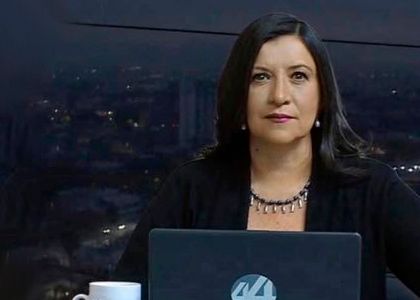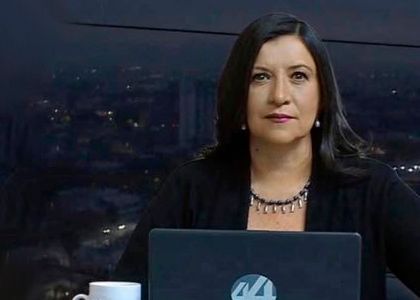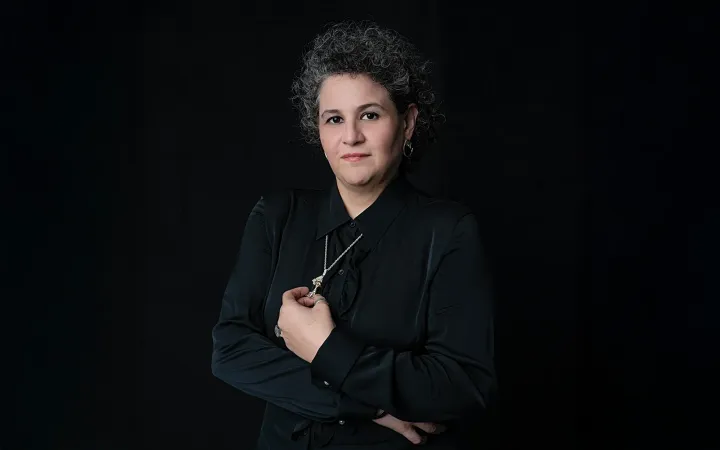Por Sonia Serrano Íñiguez

Desde hace varios meses, cuando se abre el mapa del país en la página de la Comisión Nacional de Búsqueda (CMB) de la Secretaría de Gobernación, destaca Jalisco en un color rojo intenso. Desde hace varios meses, Jalisco es tierra de desaparecidos.
En la actualización más reciente, hasta antes de escribir estas líneas, el Registro Nacional de Personas Desaparecidas y No Localizadas en México establecía que Jalisco es el primer lugar con 15 mil 42 personas desaparecidas. Imaginemos: equivale a llenar el Auditorio Nacional 1.5 veces.
A pesar del elevado número, los datos oficiales dejaron de ser un referente para conocer la situación real del estado ante este delito. La información que publica la autoridad dejó de ser confiable, principalmente por dos situaciones. La primera ocurrió el 25 de marzo de 2022, cuando Jalisco había llegado a 16 mil 222 personas desaparecidas y, sin mayor explicación, bajó a 14 mil 915. Así, de un plumazo, desaparecieron a los desaparecidos.
A lo anterior se suma que el gobierno de Jalisco decidió abrir un espacio para publicar sus propios datos, el Sistema de Información Sobre Víctimas de Desaparición Forzada (Sisovid). Según la última cifra actualizada, reporta que en Jalisco hay 13 mil 918 personas desaparecidas. La diferencia, con respecto a los datos nacionales, es de mil 214 personas. La diferencia no es mínima, pues hablamos de seres humanos que tienen una historia y que seguramente son buscados por alguien que los ama.
La tendencia de las autoridades a manipular los números sobre desapariciones ha ido de la mano de su desdén hacia los colectivos de familiares. No son atendidos, las fichas informativas que colocan en la vía pública son retiradas apenas unas horas después, además que la mayoría de las carpetas de investigación se integran básicamente con los datos que aportan las familias.
De manera paralela a las desapariciones, Jalisco ha destacado por la cantidad de fosas clandestinas encontradas en su territorio y la cantidad de cuerpos rescatados de las mismas.
Según los datos más recientes de la Fiscalía Especial en Personas Desaparecidas de la Fiscalía del Estado, en 2020 se localizaron 41 sitios de inhumación clandestina, el número más alto en lo que va de la actual administración estatal, ya que el año en que más hallazgos se habían registrado fue en 2019, un total de 36.
En lo que va de la administración del gobernador de Movimiento Ciudadano, Enrique Alfaro Ramírez, de 2018 a principios de 2023 se han localizado 129 fosas clandestinas. Y la cifra crecerá, pues esta semana la Fiscalía confirmó que trabaja en cuatro sitios diferentes de los que se han exhumado restos humanos, uno de ellos en el municipio de Tlajomulco de Zúñiga, el cual forma parte del Área Metropolitana de Guadalajara, del que se han rescatado más de 31 cuerpos, por lo que podría ser una de las fosas más grandes de la ciudad.
De hecho, Tlajomulco de Zúñiga, el primer municipio gobernado por Movimiento Ciudadano, cuando el ahora gobernador Enrique Alfaro se convirtió en alcalde en 2009, es la demarcación donde más fosas clandestinas se han encontrado, con un total de 55.
De esos sitios clandestinos encontrados en Jalisco han sido rescatados mil 435 cuerpos. El número más alto de personas enterradas en estas fosas se detectó en 2020, con un total de 544.
De las fosas clandestinas ha derivado un nuevo problema para Jalisco, que es la crisis forense. Los cuerpos son inhumados en fracciones, lo que ha generado un rezago importante en la identificación y, por ende, el cruce de información con el número de personas desaparecidas.
Durante el gobierno anterior, encabezado por el ex gobernador priista Jorge Aristóteles Sandoval Díaz (asesinado en diciembre de 2020) se registró una crisis en septiembre de 2018, cuando fue descubierto un tráiler que se quedó varado y que contenía alrededor de 400 cadáveres. En ese momento se optó por colocarlos en la cámara de refrigeración móvil porque el espacio en el Servicio Médico Forense del Instituto Jalisciense de Ciencias Forenses ya era insuficiente, pues se habían acumulado alrededor de 800 cuerpos y restos humanos.
En el actual gobierno han habido peores momentos. Tras una solicitud de información en la que primero se habían negado los datos y tras un proceso de transparencia tuvieron que entregarse, el IJCF confirmó que tenía resguardados en sus diferentes espacios en junio de 2020 casi 3 mil cuerpos y restos humanos, es decir, más de tres veces los que había cuando la crisis de los tráileres.
En documentos entregados vía transparencia se confirmó que incluso las secciones de cuerpos se estaban almacenando en cajas plásticas simples, para colocarlas en los pasillos de los refrigeradores y aprovechar el espacio.
La situación no ha cambiado y los colectivos de familiares de desaparecidos, que mantienen también la búsqueda en el Servicio Médico Forense aseguran que los cuerpos siguen acumulándose.
La realidad de Jalisco es una tragedia para miles de familias y lo peor es que no parece tener salida.
Las opiniones expresadas son responsabilidad de sus autoras y son absolutamente independientes a la postura y línea editorial de Opinión 51.
Más de 150 opiniones a través de 100 columnistas te esperan por menos de un libro al mes. Suscríbete a Opinión 51.






Comments ()